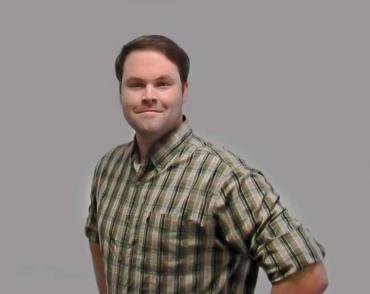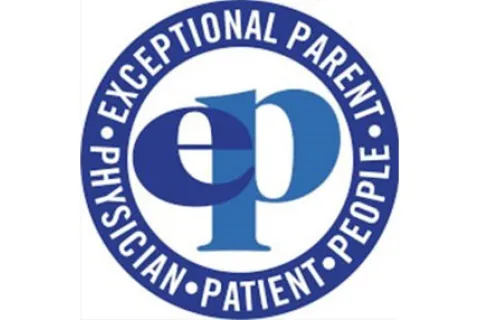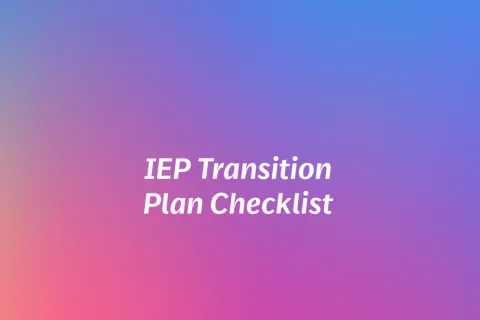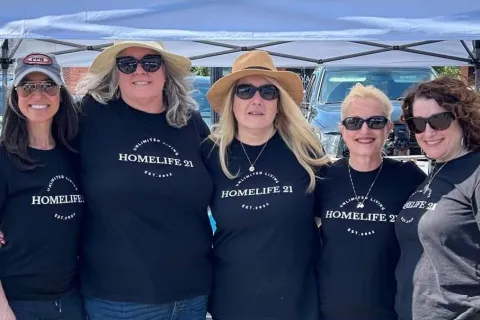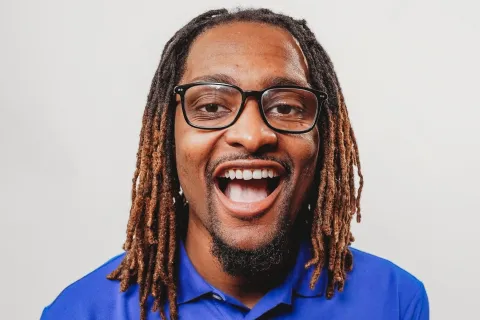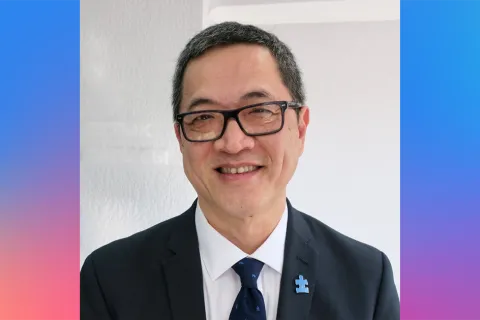Meet William W.
William W., 30
Autism Speaks has provided me with so much inspiration. Seeing how they continue to grow and be a resource to so many people enables me to continue pressing on so that I can one day make a difference, too.
Don’t tell William that being on the spectrum means scaling back on your dreams. This Oregon native has been defying the odds his entire life and has no plans of slowing down any time soon.
William was diagnosed with autism spectrum disorder when he was 4 years old. Doctors told his mom to temper her expectations for her son’s future. Now 30, William has shattered those expectations with ferocity, hurdling barriers one extraordinary feat at a time. Some of his most impressive accomplishments include earning a master’s degree in special education, performing in musicals and plays, and delivering presentations on autism-related issues to packed auditoriums.
Keep an eye out for William as you scroll through your social media feeds. With a long-term goal of becoming a leader in the autism community, he hopes to motivate millions of people to realize their dreams.
Learn more about William in this Q&A:
At what age were you diagnosed with autism?
According to my mom, she noticed signs when I was about 18 months, so she started me on early childhood intervention and evaluation. At the age of 4, I was diagnosed with autism. At the time, professionals told my mother that it was unlikely that I would ever succeed as an independent human being.
When did you realize what it meant to be on the spectrum?
Growing up, having autism never really meant anything to me. For a while, I assumed it to be something gender-specific. I didn’t realize that it was a label to describe that I was different and prone to many struggles. As I got older, I knew I was weird and awkward, but I never really cared because I didn’t like to be just like everyone else. But by the time I entered my sophomore year of high school, things really began to take a drastic turn for me.
A couple things that I struggle with is competing against others. I always liked to be better than everyone. Another thing is comparing my life to movies and TV shows. Life situations like boy meets girl, they get to know each other, develop feelings for each other, and then fall in love. Or movies and shows that depict a kid who attends school for the first time, and at first, he is different than everyone because he is so much smarter, but soon everyone grows to like him, and he becomes popular. It was never like that at all for me. Girls did not want to talk to me, I struggled in every class, and people did not want to hang out with me. When my mom learned about all this, she often stated that because I am autistic, it’s going to be hard for me. I just took it as a learning curve. But as I got older, I faced many new challenges that I didn’t know how to handle.
How has your autism affected your life? How does it make you unique?
Try and picture this… You have thousands of reliable information sources that can be books, the internet, magazines, lectures, notes, videos, audio tracks, etc., all attempting to feed knowledge into your brain. However, something is blocking that knowledge from entering your mind. Nobody can really see or identify what that barrier is, but for me, there are many ways to describe that barrier.
It’s like I was born with a blindfold over my eyes and earplugs in my ears. If you place a blindfold over your eyes, you may be able to barely see through it, but not to the point where I have a sense of everything that is going on. With earplugs, they don't exactly make you completely deaf, but limit your hearing greatly. So, if I could barely hear or see what was going on around me, I wouldn’t be able to fully understand my surroundings like other people can. As I got older, it became easier for me to break that barrier and start gaining more knowledge. However, the thing with autism is that it may be easy for me to gain knowledge, but it’s hard for me to express it.
What struggles have you faced because of your autism? In what areas has autism helped you excel?
I am very routine-oriented and prefer to follow things by the book. That can be an asset in many ways, like a job interview for instance: You greet the interviewer, shake his or her hand, make eye contact, smile, thank them for their time and consideration. If someone needs me to write a report, I follow a specific template, write down vital statistics and use the preferred statements. However, if for any reason there had to be a change in the routine, it would be hard for me to adapt.
Also, I grew up talking in a straight, mechanical voice that sounded emotionless simply because I see the world in a very straightforward way. People were intimidated by that and either avoided me or mocked me. I often looked at situations in their full absolutes without being able to identify any gray areas. For instance, when I asked my mom to make me a sandwich, she would go, “Poof, you’re a sandwich.” I didn’t often understand jokes or even phrases like, “We’ll cross that bridge when we get to it.” I would often take it literally.
One of the things that make life easier is that I am very visual. I have a much easier time learning and communicating by seeing things, so unspoken rules and nonverbal cues were always difficult for me.
Please explain what you do as an autism advocate and why that is important to you.
For several years, I have developed and delivered live presentations to various crowds or communities explaining what autism is, sharing my personal experiences, and how to help people overcome their struggles with autism. I have spoken with many families of autistic individuals and provided them with insight about my experiences [to provide] them with hope and inspiration. It’s important to me because so many people with autism are judged and sometimes mistreated out of discrimination. I believe the world needs to understand autism better so people on the spectrum can be accepted and succeed in life.
What would you tell someone out there with autism who may be interested in becoming a self-advocate?
Back in graduate school, I came up with a Self-Advocacy Communication Board. This is the best way I can describe what it means to me to be a self-advocate and why it's important.
How has Autism Speaks made a difference in your life?
Autism Speaks has provided me with so much inspiration. Seeing how they continue to grow and be a resource to so many people enables me to continue pressing on so that I can one day make a difference, too.
If you only had one sentence to explain to the world who Will W. is, what would that sentence read?
William W. is a talented, caring young man, who works hard to please others and to overcome any challenges he may face.

